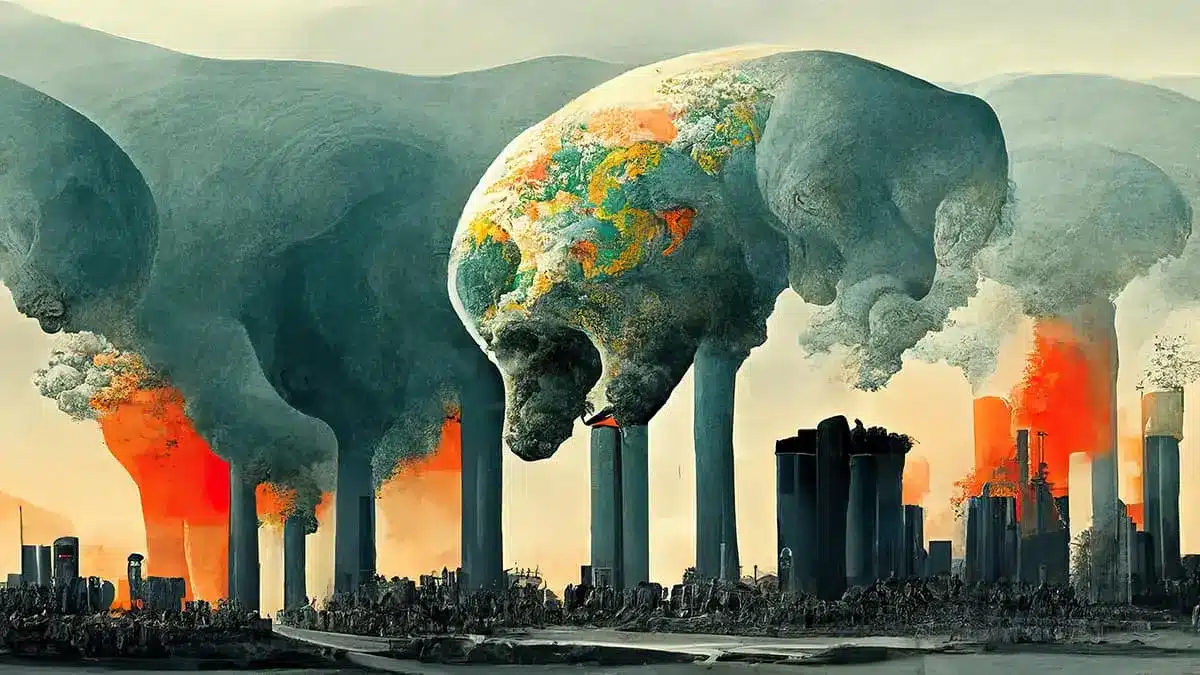About Anthropocene Epoch
- It is an unofficial unit of geologic time, used to describe the most recent period in Earth’s history when human activity started to have a significant impact on the planet’s climate and ecosystems.
- The word Anthropocene is derived from the Greek words anthropo, for “man,” and cene, for “new,” coined and made popular by biologist Eugene Stormer and chemist Paul Crutzen in 2000.
- There are numerous phenomena associated with this proposed epoch, such as global warming, sea-level rise, ocean acidification, mass-scale soil erosion, the advent of deadly heat waves, deterioration of the biosphere, and other detrimental changes in the environment.
- What is the Geological Time Scale?
- Earth’s history is divided into a hierarchical series of smaller chunks of time, referred to as the geologic time scale.
- These divisions, in descending length of time, are called eons, eras, periods, epochs, and ages.
- These units are classified based on Earth’s rock layers, or strata, and the fossils found within them.
- From examining these fossils, scientists know that certain organisms are characteristic of certain parts of the geologic record. The study of this correlation is called stratigraphy.
- Current Epoch: Officially, the current epoch is called the Holocene, which began 11,700 years ago after the last major ice age.
- Debate:
- Scientists still debate whether the Anthropocene is different from the Holocene.
- The term Anthropocene has not been formally adopted by the International Union of Geological Sciences (IUGS), the international organization that names and defines epochs.
- The primary question that the IUGS needs to answer before declaring the Anthropocene an epoch is if humans have changed the Earth system to the point that it is reflected in the rock strata.
Q1) What is the International Union of Geological Sciences (IUGS)?
The International Union of Geological Sciences (IUGS), founded in 1961, is one of the World’s largest scientific organizations. It encourages international cooperation and participation in the earth sciences in relation to human welfare and is a member of the International Council for Science (ICSU). Membership is open to countries or defined regions. IUGS has over 120 members representing over a million geoscientists.
Source: Proposal to mark a new chapter in Earth’s history rejected, scientists say
Last updated on June, 2025
→ UPSC Notification 2025 was released on 22nd January 2025.
→ UPSC Prelims Result 2025 is out now for the CSE held on 25 May 2025.
→ UPSC Prelims Question Paper 2025 and Unofficial Prelims Answer Key 2025 are available now.
→ UPSC Calendar 2026 is released on 15th May, 2025.
→ The UPSC Vacancy 2025 were released 1129, out of which 979 were for UPSC CSE and remaining 150 are for UPSC IFoS.
→ UPSC Mains 2025 will be conducted on 22nd August 2025.
→ UPSC Prelims 2026 will be conducted on 24th May, 2026 & UPSC Mains 2026 will be conducted on 21st August 2026.
→ The UPSC Selection Process is of 3 stages-Prelims, Mains and Interview.
→ UPSC Result 2024 is released with latest UPSC Marksheet 2024. Check Now!
→ UPSC Toppers List 2024 is released now. Shakti Dubey is UPSC AIR 1 2024 Topper.
→ Also check Best IAS Coaching in Delhi
























